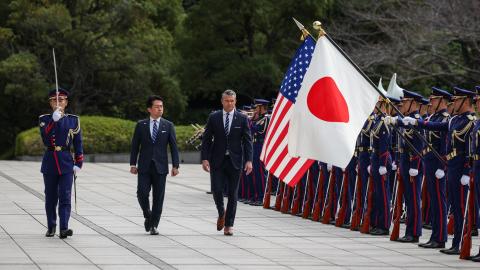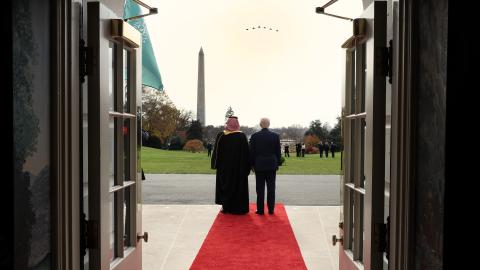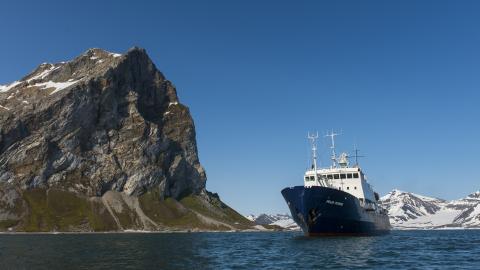When it comes to the breakdown of relations between the West and Russia, much of the focus is on Eastern Europe. However, the Arctic has also been affected by Russia’s invasion of Ukraine.
Economic sanctions have created a difficult environment for multinational oil and gas companies operating in the Russian Arctic region. In recent years, Russia has relied on Western companies such as Shell, Exxon Mobil and BP to extract oil and gas from its Arctic region. Since the invasion in February 2022, these companies have left the Russian market. China is taking advantage of Russia weakness and international isolation to gain more influence in the Arctic. No doubt China will try stepping in to help Russia.
China is already increasing its presence in the region. In 2018 it declared itself a “near Arctic state,” even though its nearest point to the Arctic is about 1,500 kilometers away. Beijing is also investing in icebreakers and increasing scientific research in the Arctic. As Western economic sanctions continue to impact Russia, expect even closer cooperation between Moscow and Beijing in the Arctic.
In the same way that the geopolitical split between the West and Russia will push Moscow closer to Beijing on Arctic issues, North America and Europe are also experiencing a policy convergence in the region. Sweden and Finland changed their long-standing policy of being militarily non-aligned and are now both in the process of joining NATO. Once they do, seven out of the eight Arctic nations will be part of the same security alliance.
Another issue impacted by the breakdown in Western relations with Russia is the functioning of the Arctic Council, which was founded in 1994 by the eight Arctic states (Canada, Denmark, Finland, Iceland, Norway, Russia, Sweden, and the US) to cooperate on non-military and security issues in the region. Over the years, cooperation has taken place on search and rescue operations, oil spill cleanup, and other environmental issues. Even after Russia's annexation of Crimea in 2014, cooperation continued inside the council. But since Russia’s invasion of Ukraine cooperation has ceased, and the Arctic Council has stopped functioning.
Great power competition, changes in the oil and gas markets, scientific research possibilities, and developments in shipping routes mean that geopolitical developments in the Arctic can have consequences for the Gulf region. Even so, there are only limited options for Gulf countries to get involved. One way is by applying for observer status in the Arctic Council. Alternatively, the GCC could also apply.
Currently, 13 non-Arctic countries have observer status in the council, including China. Observers cannot vote but can shape the agenda behind the scenes. Geography is not a factor in obtaining observer status. For example, Singapore became an observer in 2013. A quick glance at a map shows that the Gulf states are closer to the Arctic Circle than Singapore is. With several Gulf states looking beyond their region and becoming increasingly globally minded, it could make sense for some to apply for observer status. But with the Arctic Council not meeting because of the breakdown in relations with Russia, it is unlikely that gaining observer status will happen soon.
Another option is for Saudi Arabia to become the platform of Gulf cooperation on Arctic issues, using the 1920 Svalbard Treaty — named after the Svalbard archipelago, above the Arctic Circle off the coast of Norway and about 900 kilometers from the North Pole. Svalbard has a small population of about 2,000 and is the world’s northernmost permanently inhabited human settlement.
As part of the international agreements and treaties after the First World War, the Svalbard Treaty gave Norway sovereignty over the islands. However, its terms allow any of its signatories to have non-discriminatory access to the islands’ fishing, hunting, and natural resources. The treaty also allows the signatories to conduct scientific research there.
These signatories include major powers such as Russia, the US, the UK, and China, as well as countries far from the Arctic, such South Africa and even Afghanistan. In total, 46 countries enjoy equal access to Svalbard’s natural resources — and Saudi Arabia (which joined the treaty in 1925 as the Kingdom of Hejaz) is one of them.
Russia and China have taken advantage of their access to Svalbard. Russia is these today with its coal mining settlement at Barentsburg. China has conducted scientific research on Svalbard since 2004 at its Arctic Yellow River Station in Ny Ålesund. There is nothing preventing Saudi Arabia from having a presence there too. Considering the global role that Riyadh aspires to play, a presence in the Arctic region makes sense.
As Arctic ice continues to decrease during the summer months, this is creating new opportunities for energy exploration, transit, tourism, and other economic activity. This also means that more actors are involved in the region — including those who are not Arctic countries themselves. The freezing and snowy Arctic might seem far away from the warm waters and sand of the Gulf, but policy makers should not ignore it.
















